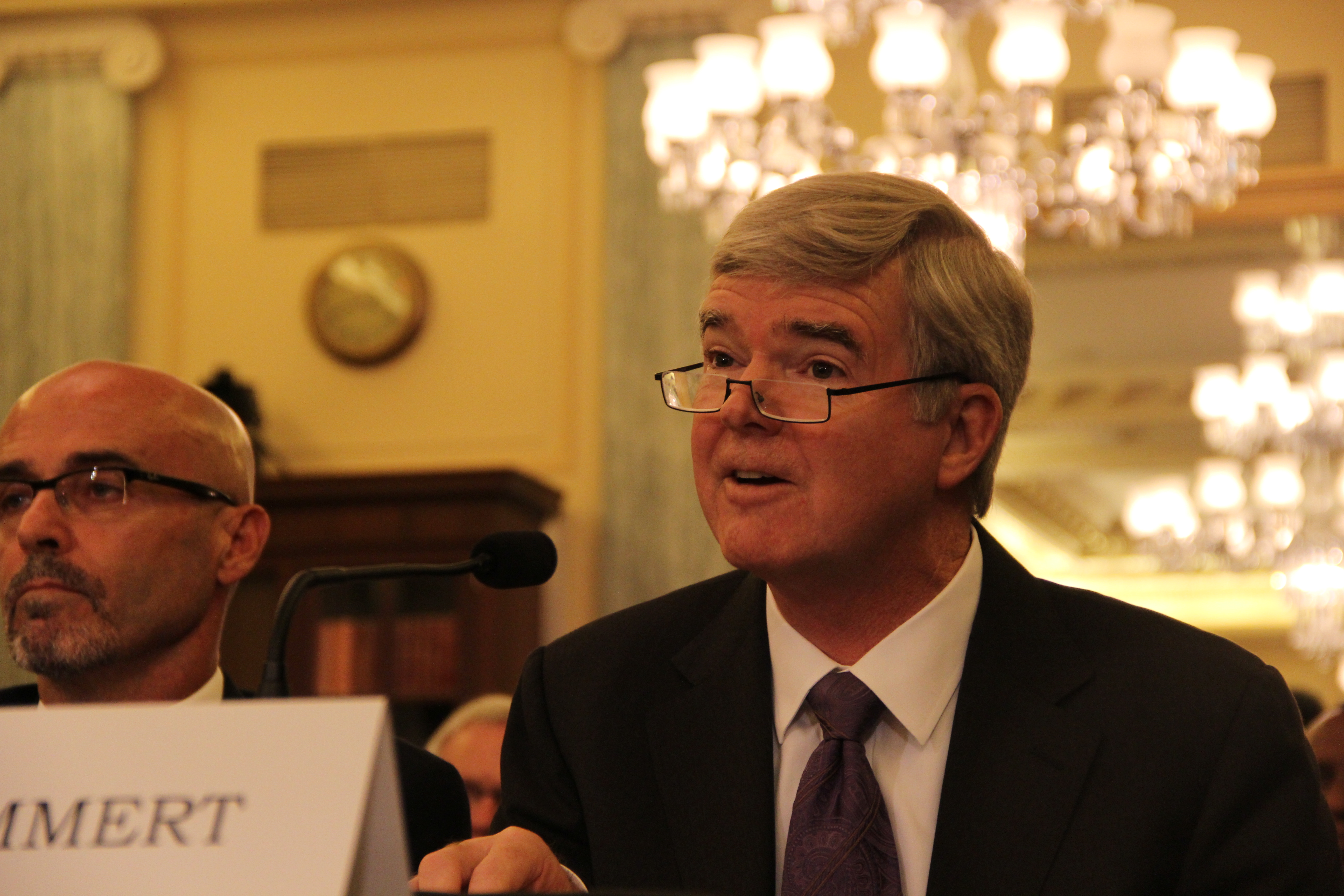As a former Division I student-athlete, I can’t exactly say I was an objective observer at Wednesday’s Senate Commerce, Science and Transportation Committee hearing, where college athletics officials and U.S. Senators discussed the case for changing the NCAA and the way it manages athletics.
I competed for DePaul University’s track and field team until 2013. I’ve had the full NCAA experience. From that perspective, the testimony of former college football players Myron Rolle of Florida State and Devon Ramsay of North Carolina hit me hard. I related to and understood their experiences so well, I felt as though I could switch places with them.
Rolle, who famously chose a Rhodes scholarship over a chance to enter the NFL Draft, pointed out he’s considered an “anomaly” among college athletes. While I’m not a Rhodes scholar, I graduated with a 3.9 GPA and am now a graduate student at Northwestern University. But, like Rolle, I watched other athletes, even some of my own teammates, struggle to do homework on bus rides to meets, beg professors for extensions on papers, and strive to keep their GPAs high enough to stay eligible for competition.
As the NCAA’s TV spots point out, most student-athletes “will go pro in something other than sports.” And it can be tough to balance schoolwork and athletics when practices and games are placed at the center of your life. A female track athlete’s time isn’t in as much demand as a male football player’s, but it’s still clear that the scale is frequently tipped in the favor of the sport, whichever you play. As Rolle pointed out to the committee, all of this can be hard to manage when so many student-athletes come to college ill-equipped for academic challenges.
Ramsay discussed the barriers college athletes face when attempting to participate in internships and other career-building activities. As my first year out of college athletics showed me, it’s indeed tough to dedicate years to your sport, only to graduate and find out that the rest of the world cares more about work experience than time spent doing speed work on an all-weather track. I would never trade traveling across the the country to run in big meets and training side-by-side with my teammates for anything. But it’s sometimes hard not to feel bitter when your hard work athletically doesn’t pay off professionally.
As Ramsay’s and Rolle’s testimonies exposed, there’s a distinct lack of student-athlete voices in the NCAA’s power structure, which makes expressing these concerns difficult.
Among the other witnesses was NCAA president Mark Emmert, whose testimony dominated the Senators’ attention under the bright lights of the hearing room. As the lawmakers delved into their questions, their tones ranged from simple interest to anger and outrage, depending on the topic at hand.
And there were many. From sexual assault prevention to academic support and graduation rates to the alleged exploitation of college athletes participating in big money sports, Emmert is under pressure to implement a wide range of reforms.
As I’ve transitioned from an athletic life to a professional one, I feel no anger toward the NCAA. My scholarship and the benefits I received as an athlete allowed me to get a great education and move on to a post-track life. But I understand why athletes in lucrative sports like football and men’s basketball — who bring in lots of money for their universities and even more marketing clout — feel exploited and frustrated. I think this is the biggest problem the NCAA must face: the discrepancies between the experiences of athletes who play big-money sports and those who participate in non-revenue ones. This is a divide the NCAA will have to bridge in order to tackle any of its proposed reforms.
A key takeaway was the extent of Emmert’s powerlessness as an administrator in the face of university presidents. This came across clearly during Sen. Claire McCaskill’s questioning. The senior Democrat from Missouri brought up a survey of her own making that concluded 20 percent of all NCAA member schools leave the handling of allegations of sexual assault involving athletes to the athletic departments.
“I can’t tell whether you’re in charge, or whether you’re a minion to [university administrators],” McCaskill declared before a dead-silent committee room.
As a female athlete, it was appalling to realize that McCaskill, not Emmert, spearheaded the survey. And it’s about time someone in power called out Florida State for its mishandling of the allegations made against Jameis Winston. When these kinds of cases are left unsolved, it not only hurts potential sexual assault victims, it also perpetuates a culture that college athletics needs to rid itself of.
During a number of instances, Chairman Jay Rockefeller (D-W.V.). made a point of asserting the Senators’ authority in dealing with sports in the United States.
It’s true that these kinds of hearings have in the past been successful in calling attention to issues like doping and steroid use in professional sports. Whether this hearing will have any impact on the NCAA and college athletes remains to be seen. I can only hope the organization that has made such a mark on my life can get its act together before it self-destructs.


